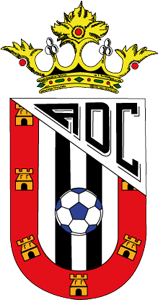
Ceuta is a Spanish autonomous city on the north coast of Africa.

Melilla is a Spanish autonomous city located on the northwest coast of Africa, sharing a border with Morocco. It has an area of 12.3 km2 (4.7 sq mi). Melilla, an exclave, is one of two permanently inhabited Spanish cities in mainland Africa, the other being Ceuta. It was part of the Province of Málaga until 14 March 1995, when the city's Statute of Autonomy was passed.

The plazas de soberanía is a term describing a series of unincorporated Spanish overseas minor territories scattered along the Mediterranean coast bordering Morocco. That term is used for those territories that have been a part of Spain since the formation of the modern country (1492–1556), as opposed to African territories acquired by Spain during the 19th and early 20th centuries.

The Ceuta border fence forms part of the Morocco–Spain border at Ceuta, a city on the North African coast. Constructed by Spain, its purpose is to prevent smuggling and to stop migrants from entering Europe. Morocco objected to the construction of the barrier since it does not recognize Spanish sovereignty in Ceuta.

The Melilla border fence forms part of the Morocco–Spain border in the city of Melilla, one of two Spanish cities in north Africa. Constructed by Spain, its stated purpose is to stop illegal immigration and smuggling. Melilla's border and its equivalent in Ceuta, also bordering Morocco, are the only two land borders between the European Union and an African country.
Ceuta and Melilla may refer to:

Union Deportiva Melilla is a football team based in the autonomous city of Melilla. Founded in 1943 and refounded in 1976 it currently plays in Segunda División B – Group 1, holding home matches at Estadio Municipal Álvarez Claro, with a 10,000-seat capacity.

Asociación Deportiva Ceuta was a Spanish football team based in the autonomous city of Ceuta. Founded in 1996, its last season was 2011–12 in Segunda División B, holding home matches at Estadio Alfonso Murube, with a capacity of 6,500.

The Fuerzas Regulares Indígenas, known simply as the Regulares (Regulars), are volunteer infantry units of the Spanish Army, largely recruited in the cities of Ceuta and Melilla. Consisting of indigenous infantry and cavalry recruited in Spanish Morocco, forming part of the Army of Africa and officered by Spaniards, these troops played a significant role in the Spanish Civil War (1936–39).

Hinduism is a minority religion in Spain.

Rusadir was an ancient Punic and Roman town at what is now Melilla, Spain, in northwest Africa. Under the Roman Empire, it was a colony in the province of Mauretania Tingitana.

In recent times, Morocco–Spain relations have been friendly though intermittently discordant.

The 2007 Morocco–Spain diplomatic conflict was a short-lived disturbance of international relations between Morocco and Spain that arose after the announcement of the impending visit of the King of Spain to the Spanish-ruled autonomous cities Ceuta and Melilla, which are claimed by Morocco.
The African Film Festival of Cordoba is an annual festival devoted to African cinema held in the Spanish city of Cordoba. It is organized by the NGO Al Tarab.
Bab Sebta is a Portuguese 2008 documentary film.

The Alhucemas landing was a landing operation which took place on 8 September 1925 at Alhucemas by the Spanish Army and Navy and, in lesser numbers, an allied French contingent, that would put an end to the Rif War. It is considered the first amphibious landing in history involving the use of tanks and massive seaborne air support.

This is the results breakdown of the Congress of Deputies election held in Spain on 9 March 2008. The following tables show detailed results in each of the country's 17 autonomous communities and in the autonomous cities of Ceuta and Melilla, as well as a summary of constituency results.

The Morocco–Spain border consists of three non-contiguous lines totalling 18.5 km around the Spanish territories of Ceuta (8 km), Peñón de Vélez de la Gomera and Melilla (10.5 km). These three exclaves form part of Spain's plazas de soberanía, which also includes a number of small islands off the Moroccan coast.
The Statute of Autonomy of Ceuta is the basic institutional norm of the autonomous city of Ceuta. It was approved by the Cortes Generales through Organic Law 1/1995 of March 13, published in the Boletín Oficial del Estado the following day. At the same time, the Statute of Autonomy of Melilla was also approved.















